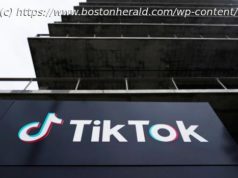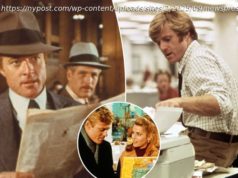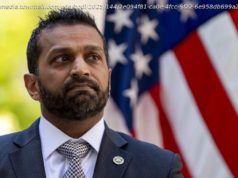Associated Press reporter, photographer witness chaos unfold at weekend rally of white nationalists in Charlottesville.
It started with threats, taunting and racial slurs, and escalated to total pandemonium — hand-to-hand combat in the streets of Charlottesville.
White nationalists and counter-demonstrators threw punches, screamed, set off smoke bombs. They hurled water bottles, balloons of paint, containers full of urine. They unleashed chemical sprays. Some waved Confederate flags. Others burned them.
I watched, notebook in hand, as people gasped for breath and clutched at their swollen eyes, burning from pepper spray or mace.
And for more than an hour — as I roamed what looked like a battle scene, along with AP photographer Steve Helber — authorities mostly watched from the fringes.
The weekend violence in Charlottesville unfolded downtown on the edge of Emancipation Park, where the Confederate monument that ostensibly started it all stands. White nationalists, angry that the city plans to remove a towering Robert E. Lee statue, had a permit to hold a noon rally there.
Hundreds of nationalists were in place two hours before the event was to start, corralled in the middle of the one-square-block park by barriers and police tape, with state police officers dotting the edges of their pen.
Three of the streets around the park were blocked off, so a crush of counter-demonstrators gathered around the single intersection that remained open, a stone’s throw from the nationalists.
As the start time drew closer, Steve and I saw more and more people from both sides converging on the park’s edge. And as the crowd size grew, so did the hostility.
Pockets of fighting broke out in the chaotic tangle of bodies. Opponents crashed into one another, threw punches, beat each other with clubs, only to be pulled apart by their comrades — not the police.
At one point, a group of white nationalists huddled together, brandishing shields like Roman soldiers as they marched toward a throng of counter-protesters. Police did not intervene.
Screams for help echoed throughout the crowd as volunteer medics bobbed in and out, rushing people to tents at another nearby park where they’d set up a makeshift clinic.
Despite the extended, violent skirmishes, Steve and I never witnessed an officer step in. State police, however, said they made three arrests.
Around 11: 30 a.m., the governor declared a state of emergency, the city declared the gathering an unlawful assembly and bullhorn-wielding officers ordered the crowd to disperse.
State troopers donned riot gear and formed a line blocking the park. Inside, officers herded the rally-goers out.
From there, though, we watched confusion take hold.
Rally organizers told attendees to go home, but bands of people on both sides still roamed through the city. At one point, a rumor spread that the nationalists planned to attack a housing project, so some counter-protesters took off in that direction.
Chief Al Thomas told reporters it took an hour to “secure the streets.” But it’s not clear what “secure” meant on Saturday.
About 1: 30 p.m., on a main street south of the park, bands of counter-demonstrators converged for what felt like a victory march. No police were visible to direct traffic or accompany the crowd.
The counter-demonstrators cheered, waved flags and banners, snapped photos and smiled, perhaps for the first time all day.
“Whose streets? Our streets!” they bellowed.
Then I heard the sound of squealing tires — and screams.
A car had plowed into the group, hurling bodies in the air, killing 32-year-old Heather Heyer and injuring 19 others. All of us nearby scrambled backward for safety or ran to help the injured.
Asked later why the street crossing was open, Thomas said he wasn’t sure if it was.
After the shocking violence, people on both sides and some former law enforcement officials have questioned why police didn’t do more.
Officials, including Virginia Gov. Terry McAuliffe, have defended law enforcement’s response, saying they faced a difficult situation and had to show restraint because the crowd was so highly armed.
But that doesn’t mean the police chief doesn’t have regrets.
“It was a tragic, tragic weekend, ” he said.
Sign up today for unlimited digital access to our website, apps, the digital newspaper and more.






